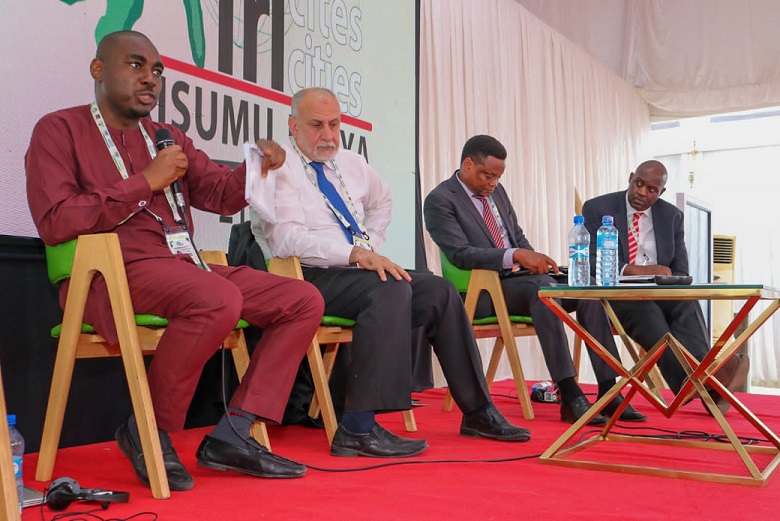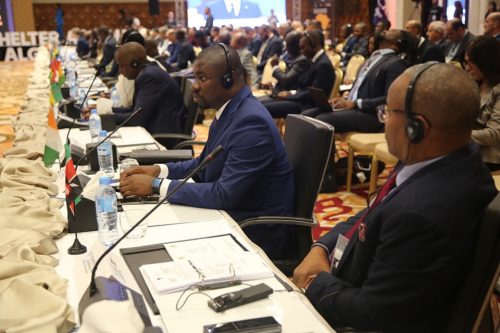Pan- African housing and urban development financier, Shelter Afrique has urged African countries to fast-track urbanization to stimulate economic development across the continent.
Speaking at the 9th Africities Conference held in Kisumu, Kenya between 17-21 May, 2022 and attended by over 11,000 people, including 8,000 official delegates from across Africa and globally, Shelter Afrique’s Head of Policy, Research and Partnerships Dr. Muhammad Gambo said urbanization could play a major role in economic and social progress, if well managed.
“No country has grown to middle income without industrializing and urbanizing and none has grown to high income without vibrant cities. China, for instance, is widely held up as an example of how urbanization can fuel industrialization and transform living standards. This is why we strongly believe African countries should put more emphasis on effective urbanization if they intend to lift their people out of mass poverty, and doing so, fast,” Dr. Gambo said.
A report by the Organization for Economic Co-operation and Development (OECD), Africa’s Urbanisation Dynamics 2020: Africapolis, Mapping a News Urban Geography”, the pace of urbanization and urban population growth in Africa has changed significantly across the continent generally as well as within its various regions.
According to the report, Africa’s urbanization rate will continue to grow among the fastest of the world regions in the coming years as its population grows, which is expected to double by the year 2050.
“We urge policymakers across the continent to enact policies that will encourage urban growth modeled around economic development and poverty eradication,” Dr. Gambo said.
Dr. Gambo, however, noted that funding urban growth still remains a formidable challenge for many countries, but believes it’s achievable.
“Shelter Afrique recently completed a debut ₦46 billion (US$110.7 million) Series 1 Fixed Rate Senior Unsecured Bond Issuance in Nigeria’s capital market under its ₦200 billion (US$481.3 million) bond issuance programme for housing and urban development in Nigeria. This issue was 60.7% oversubscribed, meaning there is an appetite for such bonds, not only in Nigeria but also in other countries like Kenya, South Africa, Morocco, etc. What African countries need is the know-how to create financial ecosystems that can support the mobilization of municipal and subnational finances for urban infrastructure development,” Dr Gambo said.
The African Development Bank estimates that the continent’s infrastructure financing needs will be as much as US$170 billion a year by 2025, with an estimated gap of around US$100 billion a year.
Africities is a Pan Africa conference that is convened by the United Cities and Local Governments of Africa’s (UCLG-A) and brings together the leadership of cities and sub-national governments and their associations for the advancement of decentralization and local governance aimed at improving the living standards of the citizens. This year’s conference discussed the role of Intermediary Cities of Africa in the Implementation of Agenda 2030 of the United Nations and the African Union Agenda 2063.









